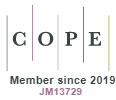Using Traditional Knowledge Systems for Post-disaster Reconstruction – Issues and Challenges following Gujarat and Kashmir Earthquakes.
DOI:
https://doi.org/10.15415/cs.2013.11001Keywords:
Traditional knowledge systems, Reconstruction issuesAbstract
In post-disaster situations, traditional constructions are generally considered vulnerable and, therefore, often get replaced by modern ones that are culturally and climatically incompatible, economically unaffordable and, thus, unsustainable in the long run. While it is now known that an enormous wealth of knowledge is embedded within traditional buildings, it is also true that many aspects of this knowledge have become diluted due to the changing social, economic and political context, as well as the needs and aspirations of the people. Herein lies the dilemma of making the appropriate approach for post disaster reconstruction in developing countries. Should we reject ‘outdated’ traditional technology and go for a complete break from the past, or should we look backwards and revert to the ‘tried and tested’ traditional wisdom? A hypothesis has, thus, been raised through this article -- can there be a ‘middle way’, taking the best of the past and the present, for planning a better future? The article will discuss this core issue in the context of the reconstruction challenges following the 2001 Gujarat earthquake.
and Northern Kashmir earthquake that struck on 8 October 2005.
Downloads
References
Jigyasu, R. (2002), ‘Reducing Disaster Vulnerability through Local Knowledge and Capacity’, Dr. of Engineering thesis, Department of Urban Design and Planning, Norwegian University of Science and Technology, Trondheim.
Paul Sillitoe et. al (1998), ‘Participating in Development. Approaches to Indigenous Knowledge’, ASA Monographs 39 (Routledge, London)
Richards, P. (1985), Indigenous Agricultural Revolution; Ecology and Food Production in West Africa (Hutchinson, London).
Recommendations of “UNESCO-ICCROM-Agency for Cultural Affairs of Japan: Thematic Meeting on Cultural Heritage Risk Management”, World Conference on Disaster Reduction (WCDR),18-22 January 2005, Kobe, Japan
Schmuck-Widmann, H. (2001) Facing the Jamuna River – Indigenous and engineering knowledge in Bangladesh, Bangladesh Resource Centre for Indigenous Knowledge.
“The Hyogo framework for action (2005-2015): ‘Building the Resilience of Nations and Communities to Disasters, World Conference on Disaster Reduction (WCDR), 18-22 January 2005, Kobe, Japan
Downloads
Published
Issue
Section
License
Articles in the Journal of Creative Space (Creat. Sp.) by Chitkara University Publications are Open Access articles that are published with licensed under a Creative Commons Attribution- CC-BY 4.0 International License. Based on a work at https://cs.chitkara.edu.in. This license permits one to use, remix, tweak and reproduction in any medium, even commercially provided one give credit for the original creation.
View Legal Code of the above-mentioned license, https://creativecommons.org/licenses/by/4.0/legalcode
View Licence Deed here https://creativecommons.org/licenses/by/4.0/
 |
Journal of Creative Space by Chitkara University Publications is licensed under a Creative Commons Attribution 4.0 International License. Based on a work at https://cs.chitkara.edu.in/ |







